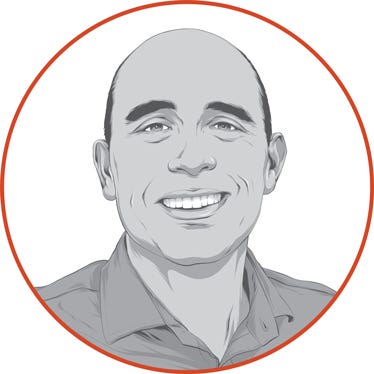
Some farmers see employees as a necessary evil — nothing more than overhead, a line-item expense.
Lon Frahm takes just the opposite view. He looks for potential employees who are worthy of being empowered. Then he provides the tools and structure for them to do their best work.
“Employees are long-term fixed assets, and I invest in them,” says the Colby, Kan., farmer. “We have a career plan for most of our employees.”
That strategy shines through daily on this vast corn and wheat operation. How else do you explain a 30,000-acre farm that hums along smoothly with just nine full-time employees?
As farms grow, one sign of trouble is often efficiency. Little things slip through the cracks when farming more acres.
Empowered, engaged employees, on the other hand, can take a big operation to the next profit level.
That’s why Frahm focuses on hiring good people who love to learn. He trains them, makes them feel like part of a team and then gives them real decision-making autonomy, right down to the lowest-ranking employee. That approach makes everyone accountable to each other for daily operational decisions, and frees up Frahm to do the critical big-picture thinking.
Giving up
The secrets of a great workforce start with control — as in giving up control. At the Frahm farm, that starts at the daily breakfast at the office. Employees gather at a massive round table, adjacent to a spacious kitchen. They come armed with tablets, ready to review flat-screen TVs as they crunch numbers, guide remote-control pivots and access data, embracing technology to minimize waste in the operation.
What they don’t come to the meeting for is to take orders. There’s no micromanaging here. Frahm doesn’t give orders; most of the time he simply listens and asks questions. In fact, he moved his office off the farm so his employees would learn to work through their own challenges, instead of Frahm refereeing disagreements.
This daily meeting is a chance to share ideas, minimize duplicative efforts and learn what everyone else is working on. It’s a chance for everyone to feel involved and invested in the business. On Fridays, the breakfast expands to as many as 20 people, mainly team members, along with vendors or other off-farm business partners.
“It’s a good way to build team spirit,” Frahm says.
Beyond compensation
Frahm spends a lot of money on employees. In return, a lot of work gets done without much drama, and employee turnover is non-existent.
They enjoy competitive pay, up to four weeks paid vacation and health benefits. One employee has been on the farm over 43 years.
But that’s not the only reason they’re here. They get no incentive or bonus plan. Frahm only gives raises based on how much responsibility the employee decides to take on. If employees do not want to take on additional responsibilities, they do not get to the next pay level.
So if it’s not just money, what is it? Here’s what they told us: “Lon treats us well. He lets us help with making decisions, and he respects us.”
“The team is why I stay. I have respect for Lon and there is nothing I wouldn’t do for him.”
“I like the environment, the continuing education and the personal growth. I stay because of the team. I get a living wage, and he allows us to reach our dreams.”
“I like the atmosphere and being part of something bigger.”
“I stay because I am empowered. I am not micromanaged. I am allowed to make decisions. I love the team I work with.”
“Initially, I came because the farm was progressive, because of the team and the friendships. I am allowed more and more responsibility, more decision-making, and I stay because of the team.”
That’s the kind of feedback a boss only dreams of, but it’s something Frahm has worked his whole career building. The common thread in those comments: “I stay for the team. I don’t want to let the team down.”
Next: Specific steps you can take to empower your farm team
About the Author(s)
You May Also Like








